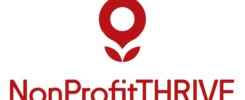According to the U.S. Bureau of Labor Statistics, the U.S. economy in 2016 might pass another important marker left behind by the Great Recession – entrepreneurship.

In 2015, the BLS calculated that there were 679,072 businesses in their first year of operation. That was the highest level of startup activity in the U.S. since 2007 when there were 703,834 new business launches. Not surprisingly, startup activity peaked in 2006 – the year before the U.S. and world economy went into the abyss – at 715,734 before plummeting all the way to just 560,588 in 2010.
ThinkerVentures, unlike some business development firms looking for more stable contracts, thrives working with startups. The energy and vision of someone moving into the unknown of entrepreneurship is invigorating. Why don’t more do it? We’ve found the main reasons people don’t follow through with crafting a life they truly find to be fulfilling rooted in their mindset.
We don’t value bad ideas
Everyone has an idea. It’s fun to have an idea and even more fun to talk about them with other people. What isn’t fun is asking questions about whether the idea might really work or what is more compelling about our idea versus other existing solutions. Many times, when we begin to ask those questions we find that our idea isn’t that compelling.
Those who lack courage stop there. They believe that because their initial thought doesn’t hold up under scrutiny that somehow their thought is not compelling.
What most people forget is that every great idea is built on not-so-great ideas. It took Thomas Edison, according to legend, 1,000 tries to create a working light bulb. There is always a jumping-off point – something that leads to something else. Every success is built on multiple failures. Your idea while flawed now is a starting point, the beginning of a journey, and every great journey requires courage.
We underestimate the courage required
We tell clients all the time that we’re already wrong, we just don’t know how wrong and in what ways. That doesn’t mean that we’re not right, too. It’s just we’re courageous to move through the thing we didn’t know. We’re courageous to move from the average idea to the amazing one.
It takes courage to tell a joke when you’re the only one laughing. In the same way, it takes courage to look your dumb idea in the face and tell yourself it’s just a single step toward something better. It takes more courage to tell someone else your brilliant idea and find out it won’t work because of something you didn’t think of. Most people lack that courage, not because they don’t have courage, but because they fear the pain.
We reject pain
It’s painful to give up relationships or stuff to pursue an idea. It’s painful – a bruise to your pride – to put yourself out there and find out you’re the only one who believes. So most people don’t. They talk about their idea, looking for validation, and if they don’t get that validation, they stop.
We misunderstand the value of bad ideas and so are hurt when someone tells us our idea isn’t good. When we find out the journey is painful, most stop and choose the path of less pain. We think of ourselves at ThinkerVentures as enablers. We help people to accept the pain and continue to move forward.
Startup Weekend
The world never stops spinning. There are great ideas everyday just waiting for someone to make them a reality. To that end, Thinker is proud to be a sponsor of the first Startup Weekend in Rockford, Ill. Startup Weekend once was just an idea. Launched in Colorado in 2007 by Andrew Hyde, it brought together 70 entrepreneurs with the goal of creating a startup company in just 54 hours.
Startup Weekend, run by Techstars, has taken place now in more than 140 countries and involved more than 225,000 entrepreneurs. Rockford’s first Startup Weekend takes place Nov. 11-13 at Rockford University’s Puri School of Business. Over three days, graphic artists, marketing experts, business managers, developers and dreamers will pitch ideas for new startup companies, form teams around those ideas and work to develop a working prototype, demo or presentation by Sunday evening.
Thinker will be there, helping to push and prod and perfect those pitches. Will you?


